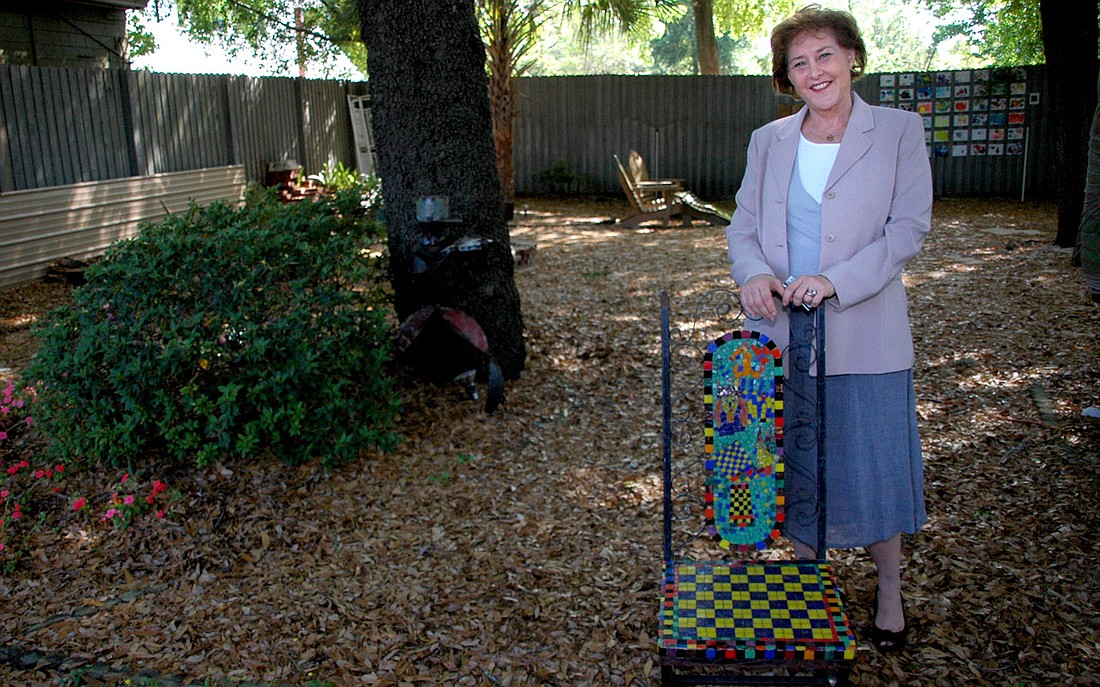- April 24, 2024
-
-
Loading

Loading

Lauren Zimmerman would cry, beg and plead with her 9-year-old daughter to eat. Nothing worked.
Holly would keep the food in her mouth, move it around on her plate, or just sniff the little rice grains before laying them back down. It always turned into a fight, with Holly hysterical, sometimes threatening her parents.
“Every meal was a battlefield,” Zimmerman said.
Zimmerman, a Maitland resident, was hopeless — three pediatricians had told her that Holly didn’t have anorexia, but she wouldn’t eat. Her growth was stunted; she was 18 inches shorter than her classmates. After countless hours searching and reading, Zimmerman found a new approach to treatment. Thirty days later, her daughter was eating food, without a fight. Now she’s opened her own clinic in Maitland that uses what’s called the Maudsley approach.
“It changed my life,” Zimmerman said. “Eating was not negotiable.”
Family-based care
That’s part of the philosophy behind the treatment Zimmerman decided to get for her daughter. The Maudsley approach — named after the London hospital it was developed at — is also called family-based treatment (FBT). It has three phases: the first is “re-feeding” the child. Eating is the sole goal of this phase.
While traditional treatments first set out to find the cause of the eating disorder and address that, FBT has a recovery-first approach. It’s also unique in that it puts parents in the driver’s seat of the recovery. The doctors teach the family how to treat their child, rather than isolating them from the therapy, which can be the case in standard forms of treatment. Instead of standing back and letting the experts do their work, the parents get it done.
“When the parents get involved, the food is going to get in; food is medicine,” said Laura Collins, executive director and founder of Families Empowered and Supporting Treatment of Eating Disorders (FEAST), a website that has resources for parents with children suffering from an eating disorder. It endorses FBT and empowers families during treatment.
Positive research
While some doctors and therapists remain skeptical, research supports the new treatment. In a study published in the Archives of General Psychiatry last October, more than 40 percent of patients getting FBT were in full remission after a yearlong treatment phase. For those receiving traditional treatment, which involves finding the causes of the disorder and giving therapy for that, it was found to be only 23 percent effective after a year.
By teaching the parents, the work done at the treatment center can be continued at home, which will make it more effective, said Roxanne Rockwell, the director of Adolescent Eating Disorders Services at the University of California San Diego. Rockwell also treated Holly.
“You want parents to be the center of the cure,” Zimmerman said.
Julie Shepardson, a licensed mental health counselor in Oviedo who doesn’t practice FBT, said, depending upon the case, that she includes the family in her treatment of eating disorders, and sees the value in that.
“They can be an integral part of healing,” she said.
The patient
Though Holly doesn’t remember a lot about how she felt about eating, she knows she didn’t like the treatment at first. Sitting at the table for hours just to get Holly to eat one meal was an everyday occurrence.
“Lunch would turn into dinner,” Zimmerman said.
It’s hard on the parents when their children are overcome by the disorder, when the anorexia talks more than the child, Rockwell said.
“It is not the parent’s fault, it’s not the adolescent’s fault — they’re out of control,” Rockwell said. “We tell the parents, you’re fighting a beast right now.”
Finding success
Holly is a good example of the treatment working. She’s 12 now, and willingly eats pizza and pretzels while Zimmerman talks about their experience. She loves pasta with “tons of butter” on it. She fills up on junk food when her mom isn’t looking.
But Holly still struggles with food. Zimmerman said there have been times when her school lunch comes back uneaten for days, and Holly still has anxiety. But now the family has the tools to deal with the problems head-on when they come. Zimmerman said her family’s triumph has inspired her to get the training so that she can help other families.
“Her journey turned into mine,” she said.
Opening the clinic
Zimmerman is an attorney, but has been going through FBT training and is studying at the University of Central Florida to get her master’s degree in social work. This month, she opened The Florida Family Based Treatment Group, a nonprofit eating disorders clinic in Maitland.
She said she is ready to train other parents on how to treat their child using the FBT approach, while giving support and guidance during meals. She will be the only person offering this treatment in Central Florida.
FEAST’s executive director, Collins, whose own daughter’s eating disorder was treated with FBT, wishes that someone in her community were there when she needed the help.
“It was an immense relief, but it was also the hardest thing I’ve ever done,” Collins said.
Learn more
The Florida Family Based Treatment Group, a nonprofit eating-disorders clinic, has opened at 142 S. Swoope Ave. in Maitland. Visit the website at http://mychildwonteat.com. E-mail Lauren Zimmerman at [email protected] or call 407-385-7084. For more information about family-based treatment, visit www.MaudsleyParents.org.